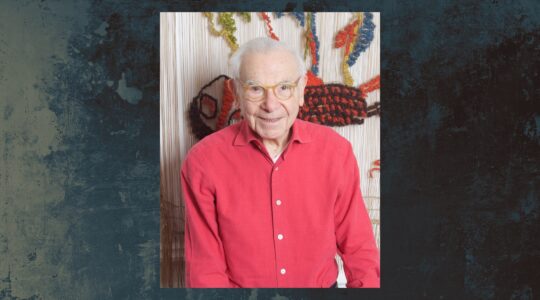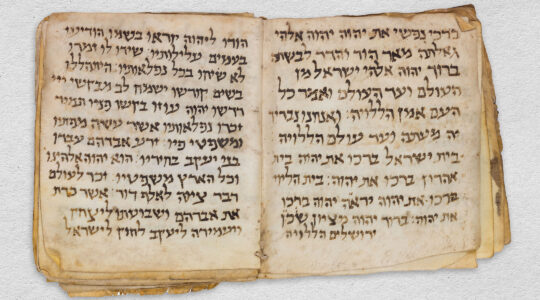Towards the end of “Lore,” Cate Shortland’s brilliant new film, which opens Feb. 8, there is a moment that crystallizes the film’s concerns in a most unexpected way.
Having led her younger siblings on a nightmarish journey through Occupied Germany, Lore (the startlingly self-possessed Saskia Rosendahl) finally delivers them to her grandmother’s home outside Hamburg. Understandably concerned by their disheveled appearance, the older woman asked where they have come from, and her granddaughter replies almost off-handedly, “We’ve come from the Black Forest.” It’s an understatement of Olympian proportions, with echoes of the dark fairy tales of the Brothers Grimm.
In that moment, Lore’s answer links the film’s bleak odyssey with the underside of a German culture that has made it inevitable and necessary for its people to be kicked by the Allied forces, good and hard. And it is the low-key way in which Shortland and co-screenwriter Robin Mukherjee make the connection that suggests the indirect but effective manner in which this film renders its judgment on Germany’s crimes and strange aftermath of the war.
Adapted from the middle story in English-born novelist Rachel Seiffert’s 2001 triptych, “The Dark Room,” the film follows Lore, her sister Liesel (Nele Trebs), twin brothers Jűrgen (Mika Siedel) and Gűnter (André Frid) and their infant brother Peter as they stumble their way across the new interior borders between British, Russian and American zones. At the same time, Lore is experiencing another, more mundane but no less confusing and difficult journey through adolescence (making her a sort of sister to the character Abbie Cornish played in Shortland’s acclaimed debut feature, “Somersault”). Their literal journey will be made a bit easier when they are joined by Tomas (Kai Malina), an exhausted but hardened young refugee who may or may not be a Jew escaped from a death march. But his presence merely multiplies Lore’s burden by introducing not only the fraught elements of sexual awakening but also her growing sense of guilt over the conduct of her parents, high-ranking Nazis.
Shortland is Australian, but her husband is a German Jew whose family was devastated by the Shoah. Perhaps that explains her decision to tell this story in an oblique, elliptical style, reflecting her own indirect relationship to events. Seemingly important narrative questions are left unanswered and moral messages are suggested rather than stated.
The film is driven forward by its obsessive focus on textures and an underlying ambivalence about nature. “Lore” is a film in which the “yuck factor” is never very far from the surface — not only the inevitable blood and gore that trails behind battles and bombings, but the often no-less-unpleasant effluences that occur naturally without the brutal intervention of human violence. When Lore finds a photo of her father on a poster about Nazi war crimes, it seems saturated with a viscous substance that may be nothing more sinister than tree sap, but which unmistakably echoes the more traumatic sights she has already encountered.
Which brings us back to the Brothers Grimm and the often-disturbing nature of the fairy tales that “Lore” indirectly invokes. It is not, one suspects, a coincidence that in Seiffert’s book, Lore tells her grandmother that they have come “from Bavaria,” a much less evocative choice of words than the screenplay’s. Shortland’s use of fog filters and soft focus gives the story a dreamlike quality, rendering even the most wretched of the battle-scapes hallucinatory. (The work of cinematographer Adam Arkapaw gives the film its nerve-wracking core.) When you combine the film’s overall look with Shortland’s rhythmic choices, emphasizing the oddest details and the children’s sluggish, reluctant forward progress, the result is unsettling, disturbing in its inversions of normality.
Shortland doesn’t insist on the fairy-tale reading. She consciously underplays opportunities to shove it to the forefront. Motifs are only repeated a couple of times, leaving it to viewers to connect the thematic dots. But when Lore finally enacts an emotional break with her family’s dubious heritage, she does so in a literally shattering gesture that destroys the resonance of the childhood tale and suddenly, startlingly transforms the film into a potent metaphor for the troubles that will face coming generations of German children and adults.
“Lore,” directed and co-written by Cate Shortland, opens on Friday, Feb. 8 at the Lincoln Plaza Cinema (Broadway and 62nd St.). For information call (212) 757-2280 or go to www.lincolnplazacinema.com.
The New York Jewish Week brings you the stories behind the headlines, keeping you connected to Jewish life in New York. Help sustain the reporting you trust by donating today.




